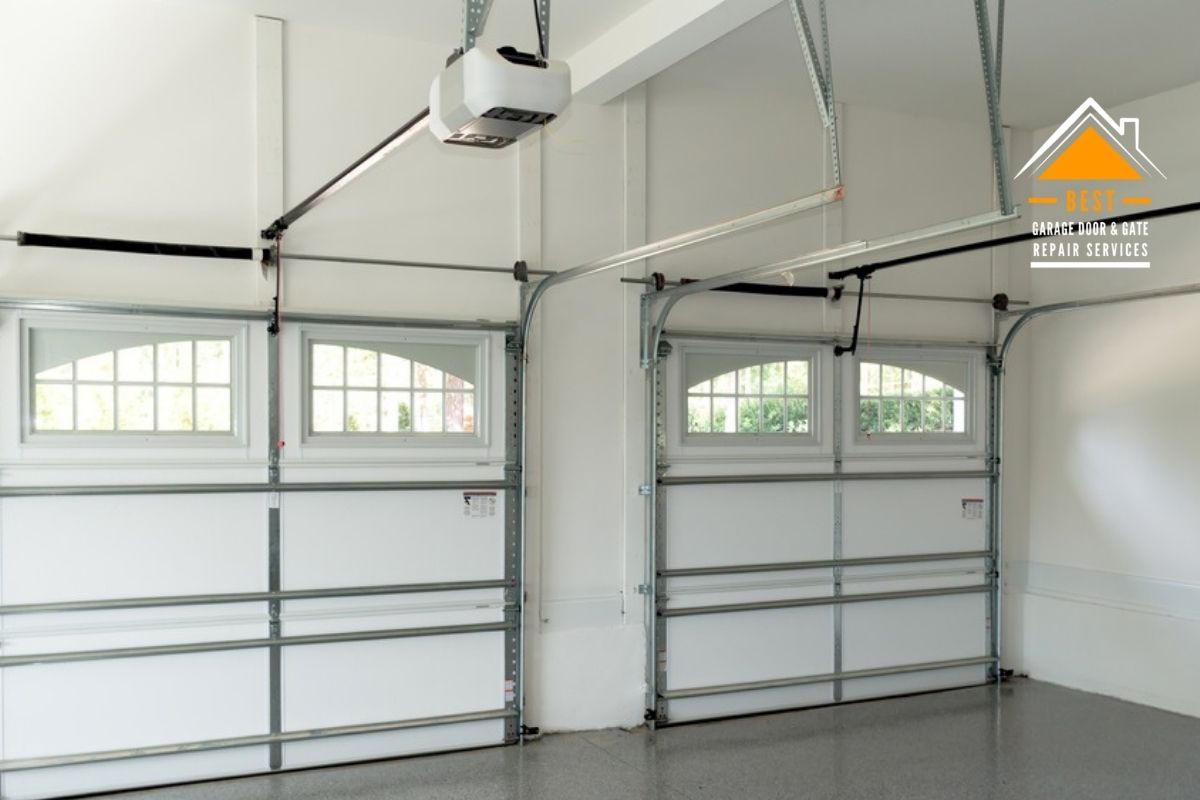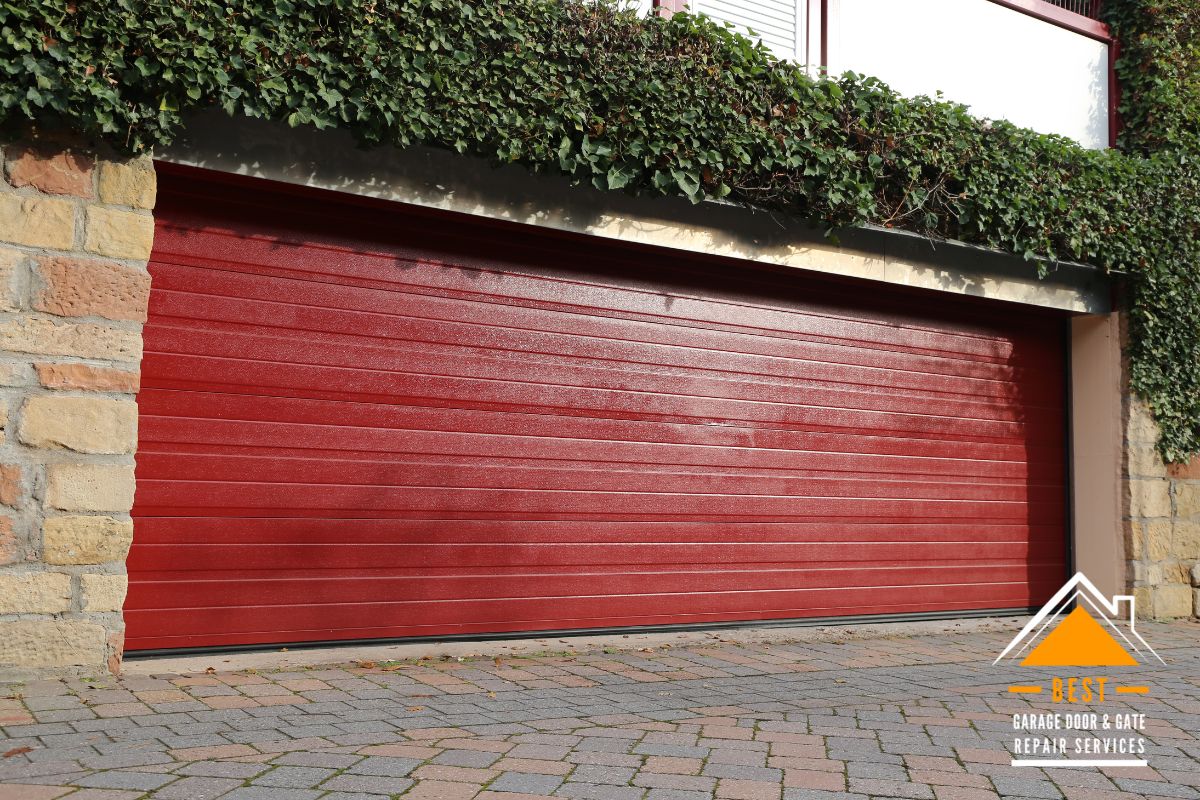Table of Contents
How Your Garage Door Choice Affects the Environment
Many homeowners focus on aesthetics, durability, and cost when choosing a garage door. However, it’s also important to consider the environmental impact of the materials used in your garage door. The production, use, and disposal of garage doors can all contribute to environmental concerns, such as resource depletion, energy consumption, and waste.
Here’s a closer look at the environmental impact of different garage door materials and how you can make a more eco-friendly choice.
1. Steel Garage Doors
Environmental Impact of Steel Production
Steel is one of the most common materials used for garage doors due to its strength, durability, and low maintenance requirements. However, the production of steel is energy-intensive and generates significant greenhouse gas emissions. The process of mining iron ore, refining it into steel, and then manufacturing the door itself consumes a large amount of energy and resources.
Recycling Potential
One positive aspect of Steel Garage Doors is their recyclability. Steel is one of the most recycled materials globally, and using recycled steel significantly reduces the environmental impact of new steel production. When purchasing a steel garage door, look for those made from recycled materials or with high recycled content.
Energy Efficiency
Steel garage doors can be insulated, which improves energy efficiency by reducing heat loss or gain. This can lower your home’s overall energy consumption and reduce your carbon footprint. However, non-insulated steel doors offer little in terms of energy savings.

Steel Garage Doors
2. Wood Garage Doors
Sustainability of Wood
Wooden garage doors are prized for their natural beauty and traditional appeal. However, the environmental impact of wood depends largely on the sourcing of the material. Harvesting wood from sustainable forests or using reclaimed wood can significantly reduce the environmental impact. Certified sustainable wood, such as that certified by the Forest Stewardship Council (FSC), ensures that the wood is harvested in an environmentally responsible manner.
Carbon Sequestration
Wood has the unique advantage of being a carbon sink, meaning it can store carbon dioxide absorbed during the tree’s growth, thereby offsetting some of the emissions from its production. This makes wood a more environmentally friendly option compared to materials like steel or aluminum, especially if sourced sustainably.
Energy Efficiency and Longevity
Wooden garage doors provide good insulation, which can enhance your home’s energy efficiency. However, wood requires regular maintenance, such as painting or sealing, to prevent rot and warping, which can increase its overall environmental impact. Despite this, wood doors can last for decades with proper care, reducing the need for frequent replacements.

Wood Garage Doors
3. Aluminum Garage Doors
Aluminum Production and Recycling
Aluminum garage doors are lightweight, resistant to corrosion, and require minimal maintenance. However, aluminum production is highly energy-intensive, involving the extraction of bauxite ore and refining it into aluminum through processes that consume large amounts of electricity and produce greenhouse gases.
Recycling Benefits
On the positive side, aluminum is highly recyclable. Recycling aluminum requires only a fraction of the energy needed to produce new aluminum from raw materials, significantly reducing its environmental impact. Choosing a garage door made from recycled aluminum can help mitigate some ecological concerns associated with its production.
Durability and Maintenance
Aluminum doors are durable and resistant to rust, which extends their lifespan and reduces the need for frequent replacements. This durability can offset some of the environmental costs of production, making aluminum a relatively eco-friendly option when considering its full lifecycle.

Aluminum Garage Doors
4. Fiberglass Garage Doors
Environmental Concerns with Fiberglass
Fiberglass is another popular material for garage doors, known for being lightweight, durable, and resistant to dents and corrosion. However, the production of fiberglass involves the use of non-renewable resources, such as petroleum-based resins and glass fibers. The manufacturing process also generates hazardous emissions, including volatile organic compounds (VOCs), which can harm both the environment and human health.
Energy Efficiency
Fiberglass doors can be insulated, improving energy efficiency. However, they generally provide less insulation than wood or insulated steel doors. While fiberglass doors require less maintenance, they are not as long-lasting as other materials, which may lead to more frequent replacements and additional environmental impact over time.
Recycling Challenges
Recycling fiberglass is difficult and not widely available, which means that many fiberglass doors end up in landfills at the end of their lifespan. This contributes to environmental waste and increases the overall impact of using fiberglass.

Fiberglass Garage Doors
5. Vinyl Garage Doors
Environmental Impact of Vinyl Production
Vinyl garage doors are valued for their durability, low maintenance, and resistance to dents and rust. However, vinyl is a type of plastic made from polyvinyl chloride (PVC), which is derived from petroleum. The production of PVC involves the release of toxic chemicals and greenhouse gases, making vinyl one of the less environmentally friendly options.
Recycling and Waste
Vinyl is difficult to recycle, and many vinyl products are in landfills. Additionally, when vinyl breaks down, it can release harmful chemicals into the environment. However, some manufacturers offer recycling programs for vinyl doors, which can help reduce their environmental impact.
Longevity and Energy Efficiency
Vinyl doors are energy efficient, especially when insulated, which can help reduce your home’s energy consumption. Their long lifespan and low maintenance requirements also contribute to their overall environmental benefits by reducing the need for frequent replacements.

Vinyl Garage Doors
Conclusion
When considering the environmental impact of different garage door materials, it is important to weigh each option’s benefits and drawbacks. Steel and aluminum doors offer durability and recyclability, while wood doors when sourced sustainably, provide a natural, renewable option with carbon-sequestering benefits.
While durable and low-maintenance, fiberglass and vinyl doors pose more significant environmental challenges due to their production processes and recycling difficulties.
To make the most eco-friendly choice, consider materials that are sustainably sourced, recyclable, and energy-efficient, and opt for garage doors with a Long Lifespan to minimize environmental impact over time.






Leave A Comment